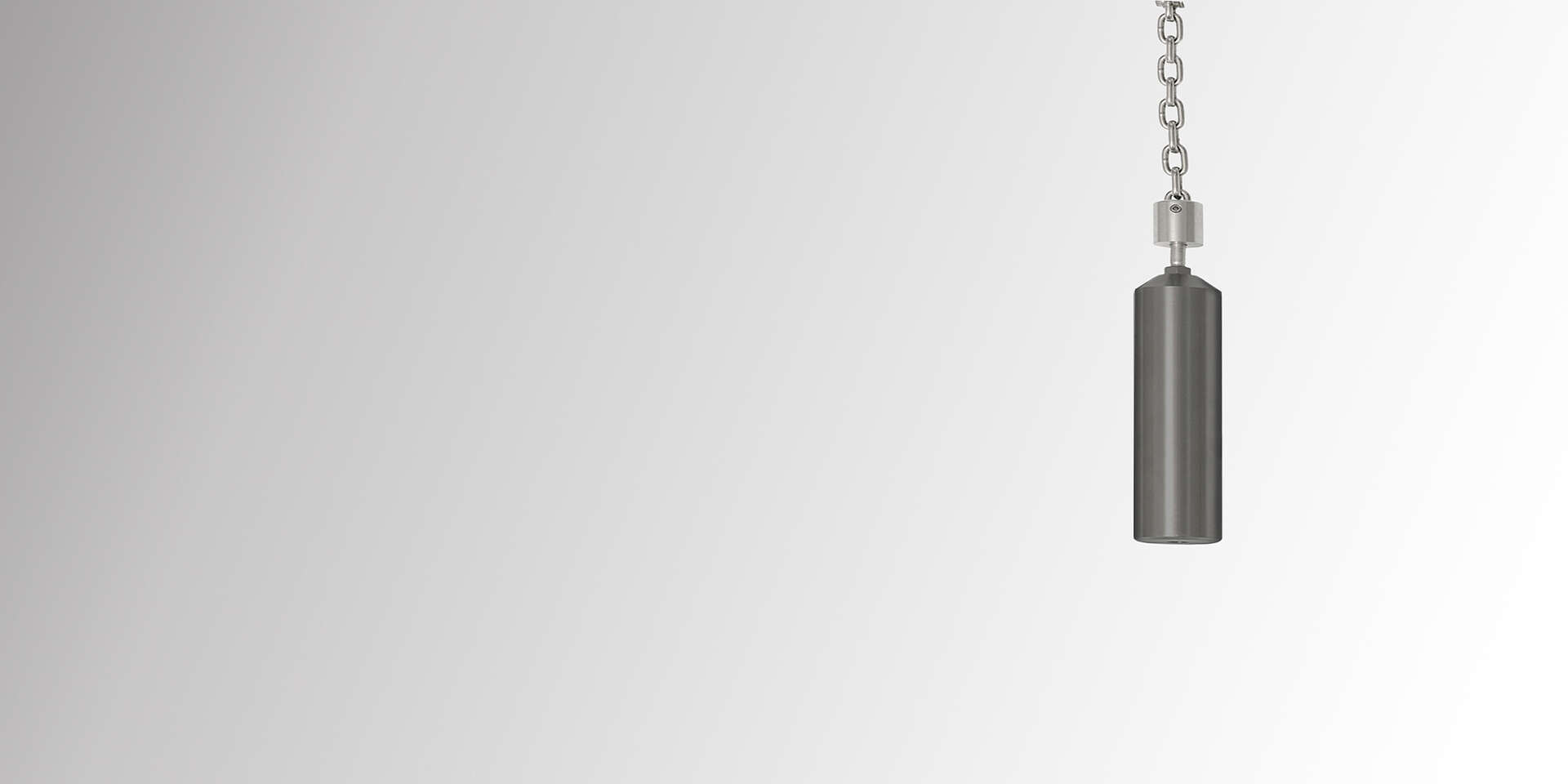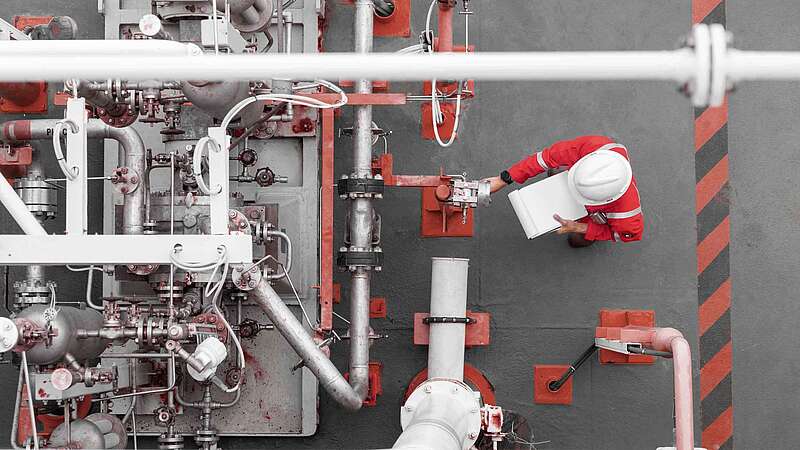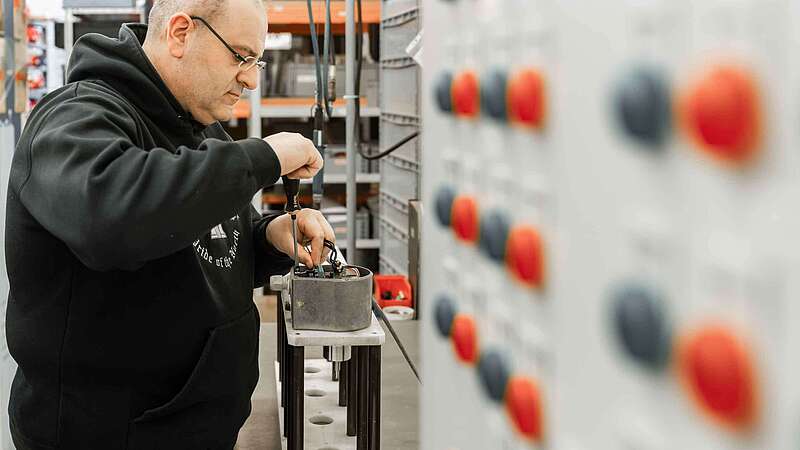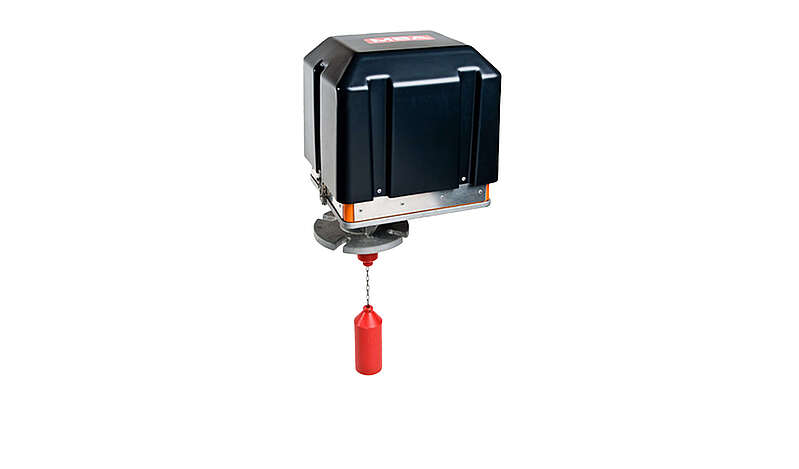Continuous level measurement in bulk storage silos
Plumb bob sensors can be a simple solution for level measurement in grain or flour silos but there are better alternatives.
Plumb bob sensors are generally suitable for determining silo fill levels and ensure that reorders can be placed in good time to avoid production bottlenecks. However, it should be noted that plumb bob measurement technology is susceptible to problems such as contamination and blockages. Especially in dusty environments in grain and flour silos.
We recommend our MBA universal solutions instead of electromechanical plumb bob sensors.
Detect point levels with a plumb bob
Level measurement by means of a plumb bob sensor is used to continuously monitor fill levels in a wide range of bulk solids such as grain and flour.
This system can detect the fill level of materials and determine the depth of sediments under liquid surfaces. This is achieved using a special sieve weight.
The electromechanial system is mounted on the silo roof. For the measuring process, the plumb bob with a filling weight is lowered into the silo on a steel belt. If the weight hits the product surface, the tensile force is reduced. The reduced tensile force is immediately recognised by the electronics and the lowering process is stopped immediately. The winding direction is reversed and the weight returns to its original position. The unwound length of the strap is measured. The difference between the measured value and the total length of the silo corresponds to the fill level.
There are also flexibly configurable visualisation systems for level monitoring and diagnostics, which collect all the necessary information via an interface.
Unaffected by bulk solids or media properties (e.g. dust, moisture, conductivity), plumb bob sensors provide measurement results up to a measuring height of 42 metres and process temperatures of up to 150 °C. Nevertheless, the measurement method cannot be used without restrictions.
Maintenance and operating restrictions
The cable used in plumb bob measurement technology is subject to natural wear and tear. For this reason, it is necessary to check the cable for damage at regular intervals and replace it if necessary. This ensures the accuracy of the measurements and the long-term reliability of the system.
During the filling process of a silo, the sensing weight must not be covered by bulk solids. This means that no measurements can be taken during these times, and the temporary restriction can lead to information gaps that must be taken into account when planning processes.
Electromechanical level measurement using plumb bob sensors also enables interface measurements, especially when differentiating solids in liquids. To do this, the weight is immersed in the liquid and only changes its direction of rotation when it has reached the surface of the solids. This measuring method is particularly important in industries where the exact control of the interface between solids and liquids has a decisive influence on the smooth running of the production process.
However, not every system is suitable for reliable interface measurement. Plumb bob sensors are susceptible to contamination and deposits in the liquid, which can affect their accuracy. Particles or deposits on the surface of the sensing weight can lead to incorrect measured values. MBA has developed innovative universal solutions to enable safe and precise interface measurement that reliably recognises and measures interfaces even under harsh conditions and when contaminated.
Our legacy product: the MBA369
Our product range is constantly being supplemented by new and further developments, because even tried-and-tested devices benefit from innovations. Thanks to new universal solutions, measurements with plumb bobs are no longer necessary.
Find out more about our universal solutions for level measurement:
MBA369
Customers who still use our plumb bob system can find product information here.
The MBA369 plumb bob system can be used to measure the fill level in all types of bulk solids. Only a plumb bob system like this can determine the level of sediments below the surface of water or liquids using a sieve weight. It is also suitable for continuous level measurement of a liquid level.
Whether in the plastics, chemical or packaging industry - capacitive sensors detect solids, bulk solids, liquids, metals and non-metals. Because they are non-contacting, non-reactive and work through container walls, there is no wear. Capacitive level sensors are developed for the detection of fill levels in hygienic environments.





